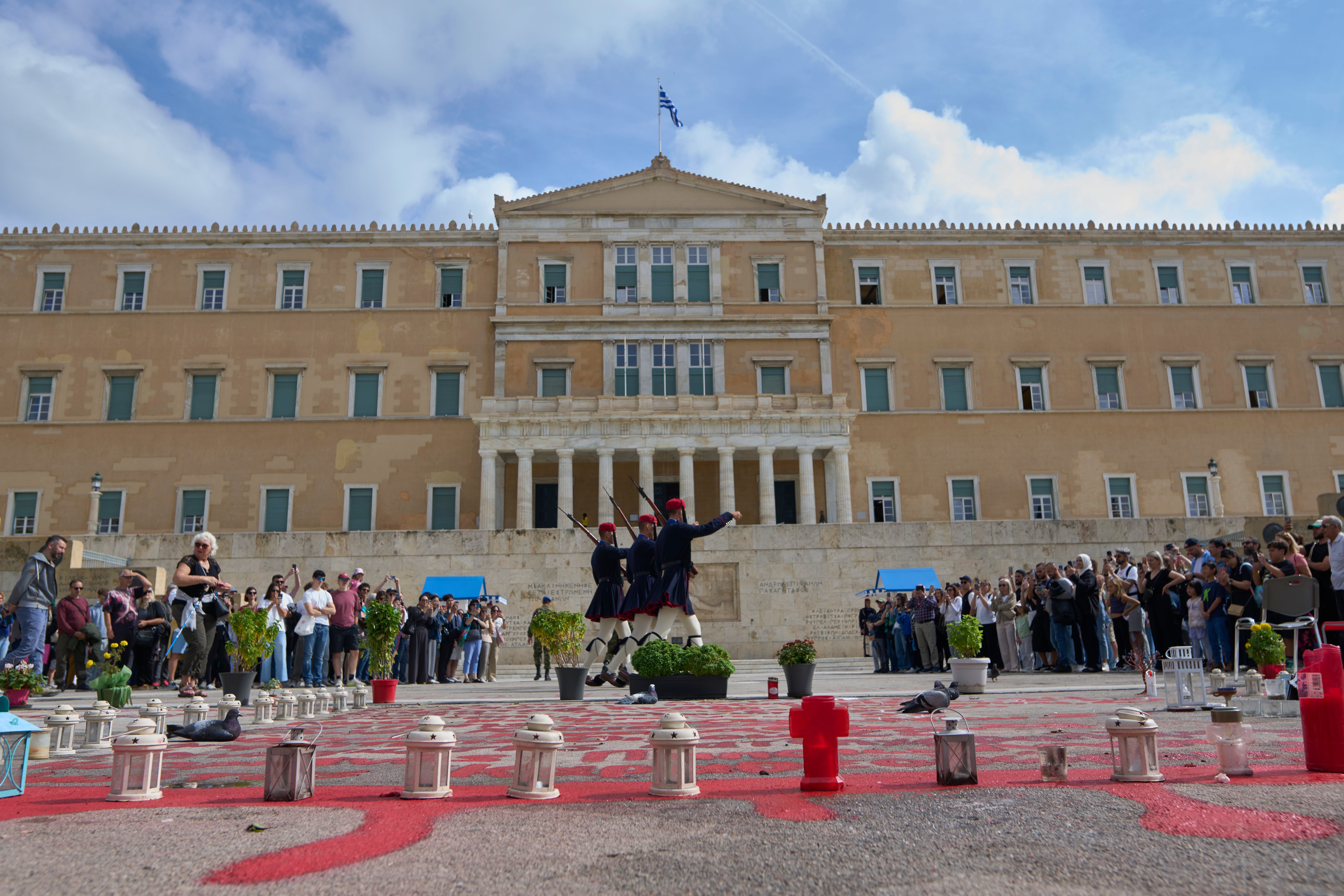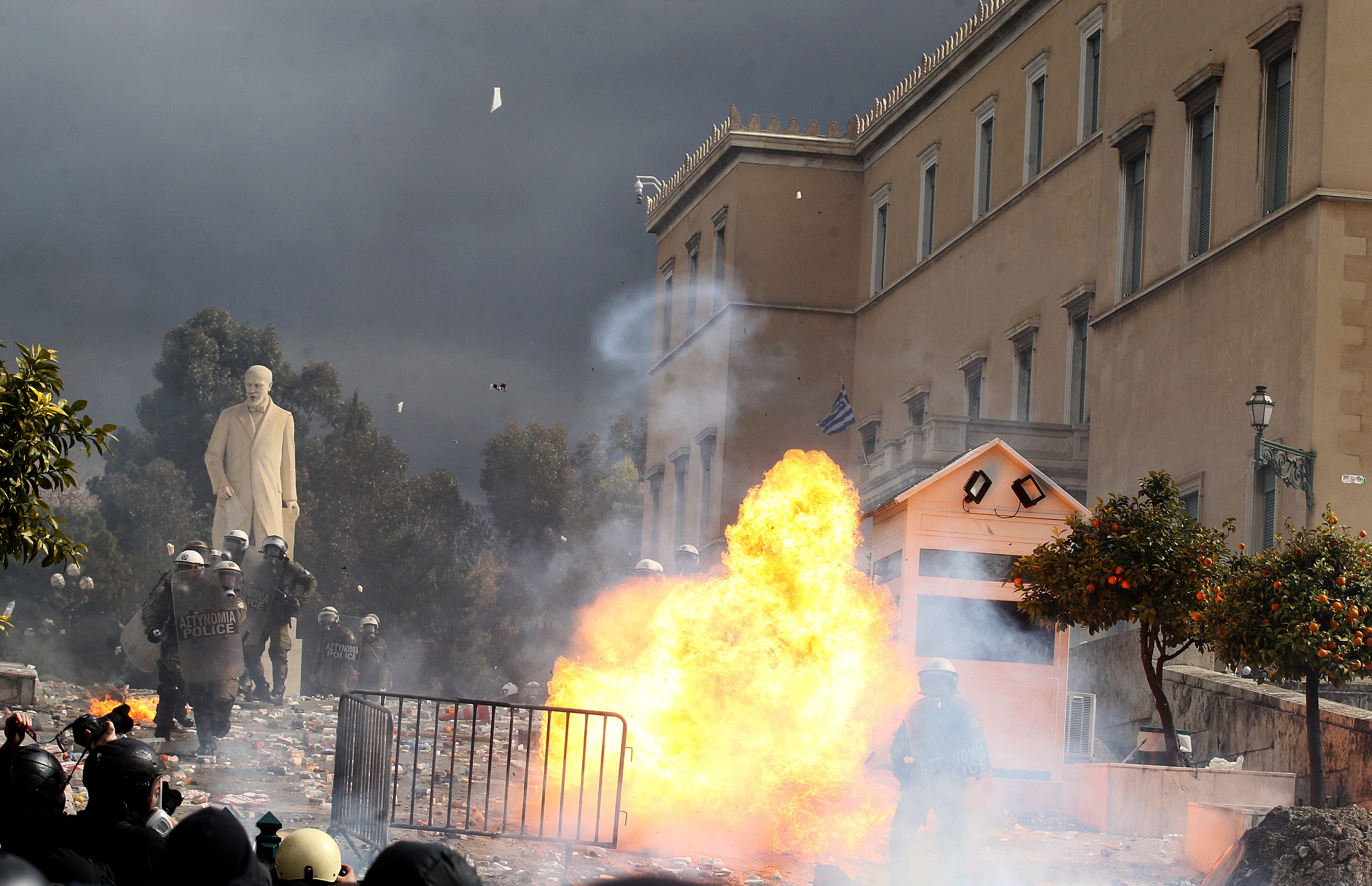Greece’s conservative government has sparked a parliamentary row by proposing to ban protests at the iconic Tomb of the Unknown Soldier in Athens. Opposition parties condemned the move, accusing the prime minister of intolerance and sowing division.
The government submitted an amendment to the law governing the monument’s care on Tuesday, triggering a heated debate. Four opposition parties lodged objections, claiming the proposal is unconstitutional and curtails the right to free expression and protest. The left-wing Syriza party responded by calling for a protest Tuesday evening.
The monument, located directly outside Parliament, has frequently served as a focal point for public demonstrations. Most recently, it became a site for protests by relatives of victims from Greece’s deadliest train crash. The February 2023 disaster, which saw a freight and passenger train collide on the same track, tragically killed 57 people, mostly students returning to university after a public holiday.
The monument, a cenotaph in honor of those who have died fighting for Greece, is a popular tourist stop for visitors wanting to see the hourly changing of the presidential guard.
The amendment brought by Prime Minister Kyriakos Mitsotakis’ government would allow visitors but would ban protests or any physical changes to the area. Violators would face a fine or up to one year’s imprisonment.

A makeshift memorial for the rail disaster victims has been set up in the small square in front of the Tomb of the Unknown Soldier, with the names of the victims written in red paint on the ground, surrounded by candles and flowerpots.
Panos Ruci, who lost his 22-year-old son Denis in the crash, recently staged a 23-day hunger strike camped out at the makeshift memorial, demanding his son’s body be exhumed for toxicology and DNA tests to determine the exact cause of death. Judicial authorities granted permission in early October.
The crash in Tempi, central Greece, exposed severe deficiencies in Greece’s railway network, including in safety systems, and triggered mass anti-government protests. Critics accuse authorities of failing to take political responsibility for the disaster or holding senior officials accountable. Some have also accused the government of a cover-up, claiming the freight train was carrying undeclared chemicals that caused a giant fireball which might have caused some of the deaths.
The trial of 36 people charged in connection with the crash is scheduled to start in March 2026.

The disaster has become a major political issue in Greece. Ruci’s lawyer, Zoe Konstantopoulou, is the leader of a small left-wing party and a member of parliament.
The government argues the Tomb of the Unknown Soldier is a national monument that must be protected.
“The aim (of the amendment) is not divisive. The aim is the respect, the reinforcement of respect for a sacred monument,” government spokesman Pavlos Marinakis said Monday.
But opposition parties argue the move is a direct reaction to anti-government protests over the Tempi disaster.
Ruci’s hunger strike “panicked the prime minister, and everyone around the prime minister,” Konstantopoulou said during Tuesday’s parliamentary debate.



)
